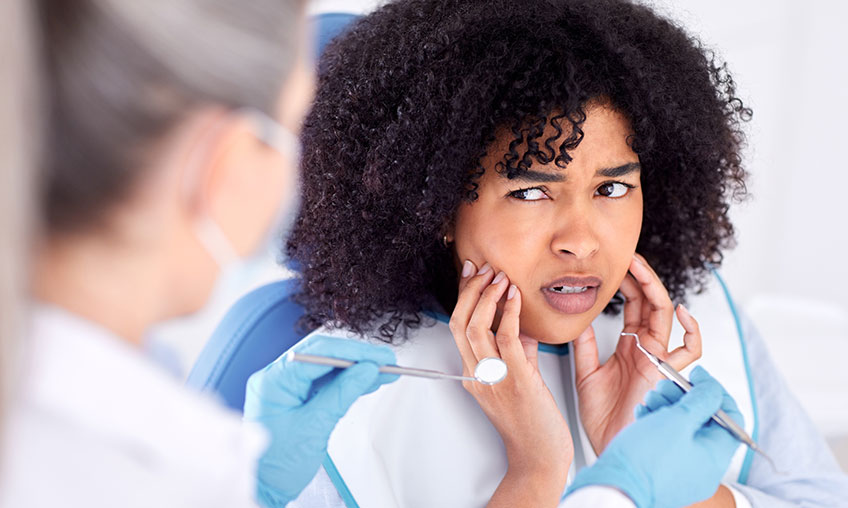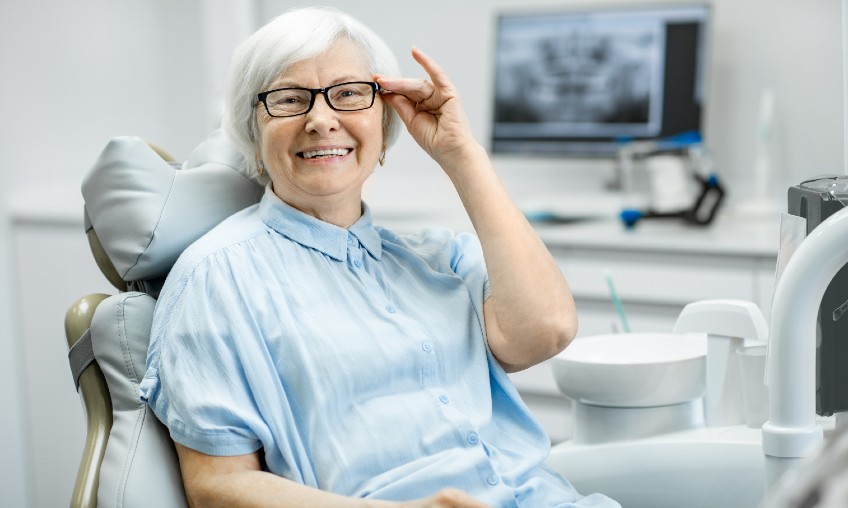
By Jay Maillet, DMD, MPH
Older adults have special health concerns. For example, the risk for oral cancer goes up for mature adults.
It takes many years for cancers to develop in the mouth and can start in the mouth or in the middle part of the throat that you can see when you open your mouth (called the oropharynx). That’s why about 80% of new cases show up in people 55 years and up. A new diagnosis of oral cancer happens most commonly among people in their 60s, according to the US Centers for Disease Control and Prevention and the American Cancer Society (ACS).
Your dentist can find many pre-cancers and cancers like this early (when they're small) during an office visit. Just ask for an oral cancer screening during a regular checkup. The screening does not hurt and takes only a few minutes.
Oral Cancer Risks and How to Avoid Them
The ACS advises getting regular dental checkups for two reasons:
- To screen for oral pre-cancers and cancers.
- To keep watch in case you have had oral cancer in the past.
Here are common risk factors and what to do to protect against oral cancer, according to the American Cancer Society:
- Tobacco – Quitting greatly lowers your risk. That’s true even if you have smoked or chewed tobacco for many years. (See free resources to help quit tobacco.)
- Alcohol — Drinking alcohol makes your risk go up -- especially heavy drinking. (Find free tools to manage or quit alcohol.)
- Smoking plus drinking — People who drink and smoke a lot have 30 times the risk of oral cancer compared to people who don’t.
- Human papillomavirus (HPV) infection – HPV is very common. Doctors usually find HPV-linked cancers in people younger than 50. But your doctor may recommend a vaccine to help protect you.
- Exposure to ultraviolet (UV) light – Sunlight is the main source of UV light for most people. So limit how much time you spend outdoors during the middle of the day. That is when UV rays are strongest. And when you are out in the sun, wear a hat with a wide brim, and use sunscreen and lip balm with a sun protection factor (SPF) of at least 30.
- Extra weight and poor diet – Regularly eating unhealthy foods and excess body weight are linked to cancers of the mouth and the part of the throat you can see when you open your mouth. (See ACS advice about eating and activity habits that help to prevent cancer.)
Other risks for oral cancer are chewing flavored betel nut and betel/tobacco blends, products that are popular with some people of a Southeast Asian and South Asian background. Individuals who have certain conditions (Fanconi anemia and dyskeratosis congenita) are at high risk too, the ACS says.
Whatever your age or stage, improving the oral health of all is our mission at DentaQuest, part of Sun Life U.S. Click here for more helpful oral health tips and information for you and your family.
Jay Maillet, DMD, MPH serves as DentaQuest’s dental director for Massachusetts, New Hampshire, and New York. He earned his DMD degree from Tufts University School of Dental Medicine and then went on to practice in both private practice and public health settings across New England. In addition to his clinical credentials, Dr. Maillet has also earned a Master’s of Public Health with a concentration in epidemiology from Harvard’s T.H. Chan School of Public Health.
 Preventistry Pulse Image
Preventistry Pulse Image
PREVENTISTRY PULSE
The newsletter designed for anyone who wants to improve oral health for themselves, their families, customers or communities.




